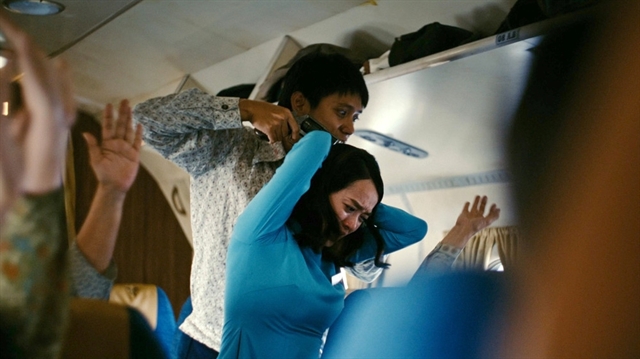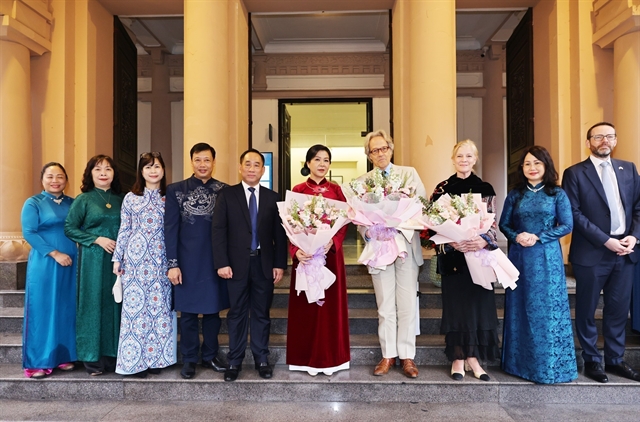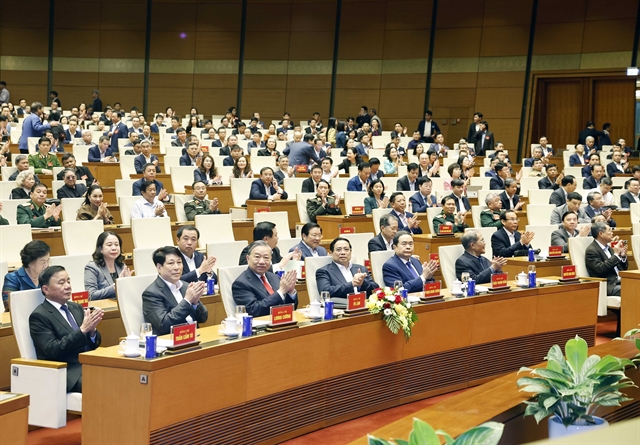 Society
Society
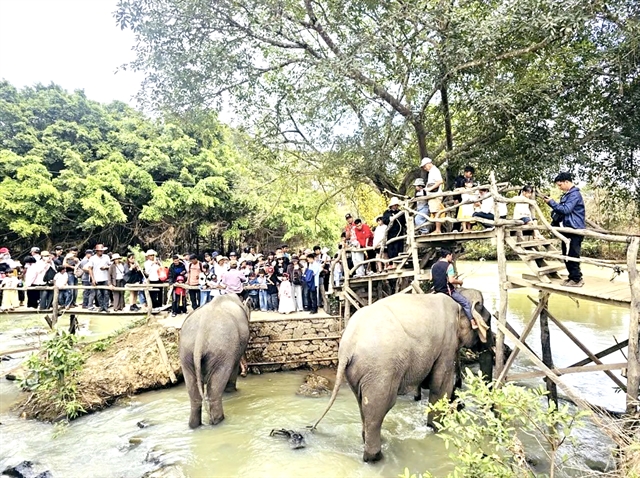
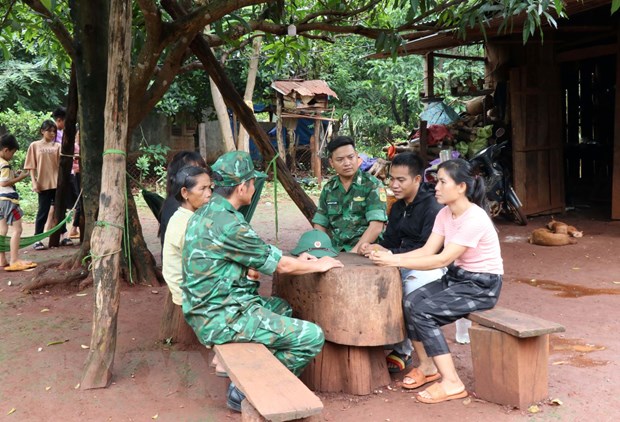 |
| Border soldiers visit a family of a victim of human trafficking in Ia O Commune, Ia Grai District in the Central Highland province of Gia Lai. —VNA/VNS Photo Hồng Điệp |
HÀ NỘI — On the occasion of the World Day Against Trafficking in Persons on July 30, the International Organisation for Migration (IOM) produced a video to dispel misconceptions about human trafficking in collaboration with the ambassadors of Australia, Canada, the UK, and the US, and called for more actions to protect victims.
In the video, the ambassadors, IOM Chief of Mission Park Mihyung as well as former Miss Universe Việt Nam H’hen Niê emphasised that human trafficking was occurring every day in the country.
In Việt Nam, there are popular beliefs about human trafficking such as the notion that it mostly affected women and girls, traffickers only targeted victims they didn’t know, and that it only involved movements across state or national borders.
Some others believed that human trafficking did not happen online and that climate change was not related to human trafficking.
In the video, Canada Ambassador to Việt Nam, H.E. Shawn Steil affirmed that trafficking in persons could happen to anyone.
Men and boys, including LGBTQI boys, could also become victims of trafficking. Young men searching for job opportunities are often targeted by traffickers.
US Ambassador to Việt Nam Marc Knapper said trafficking occurred online on many platforms.
In fact, social media has emerged as one of the primary tools used by traffickers. They used social media to recruit victims, expand their trafficking operations, exert control over victims, and deceive individuals worldwide into engaging in illicit activities, including online scams, he said.
The ambassador urged the participation of the Government and society to address this issue.
“We must hold human traffickers and transnational organised criminal groups accountable, protect victims, and find innovative ways to prevent trafficking from occurring online,” he said.
UK Ambassador to Việt Nam Iain Frew stated that the severe impacts of climate change such as floods, droughts, and saline intrusions pushed many people into poverty and made them more vulnerable.
Organised crime groups often took advantage of their economic predicament to lure, defraud and turn them into victims of human trafficking, he said.
The ambassador suggested more support to help vulnerable communities be aware of the tactics of trafficking crime groups, know more about safe legal migration and protect their livelihoods.
Explaining the scale of human trafficking, Australian Ambassador to Việt Nam Andrew Goledzinowski said human trafficking could occur within the borders of any country, including Việt Nam.
Victims of human trafficking could be recruited and trafficked in their own hometowns, even within their own homes, he stressed, urging people to report to the local authorities or call the National Human Trafficking Prevention and Control Hotline 111 in case of suspecting such an activity.
Former Miss Universe Việt Nam H’hen Niê also appeared in the video, raising her voice about victims who experienced trafficking by romantic partners, spouses, and even family members, including parents.
In particular, she said, ethnic minorities, especially women and girls, were most vulnerable and at a higher risk of becoming victims of human trafficking.
With the message ‘A human being is not a commodity. Every human is a gift’, they called for action and raised their voices to combat human trafficking and empower every victim to build back their lives and reach their full potential.
IOM Chief of Mission Park Mihyung suggested that there should be innovative ways to identify emerging trends, screen for vulnerabilities, provide support to the victims, and seek timely and viable solutions to meet the new evolving challenges of this crime.
“Only when we ourselves are fully equipped to fight against human trafficking, we can reach everyone else. We can then build a future where every victim is properly protected, empowered, and equipped to shape their own better worlds, leaving no one behind,” she said.
Human trafficking has particularly serious consequences on human rights and negatively impacts the political security of each nation, potentially leading to illegal immigration, forgery of documents, sex trafficking, and drug trafficking. Since 2013, the United Nations has identified human trafficking as one of the four most dangerous crimes in the world.
In Việt Nam, the Law on Prevention and Combat against Human Trafficking was passed by the 12th National Assembly and effective from January 1, 2012, to provide a crucial legal framework for the prevention, detection, and prosecution of human trafficking crimes.
In the 2018-2022 period, Việt Nam deterred 440 cases of human trafficking with 1,240 victims. In the first six months of this year, the police discovered 56 cases involving 150 criminals and 118 victims. — VNS

